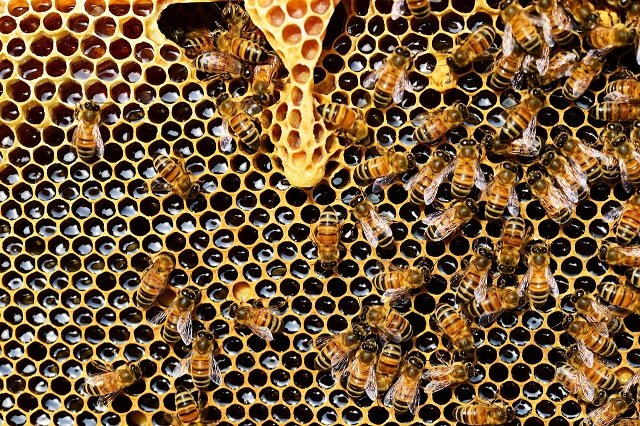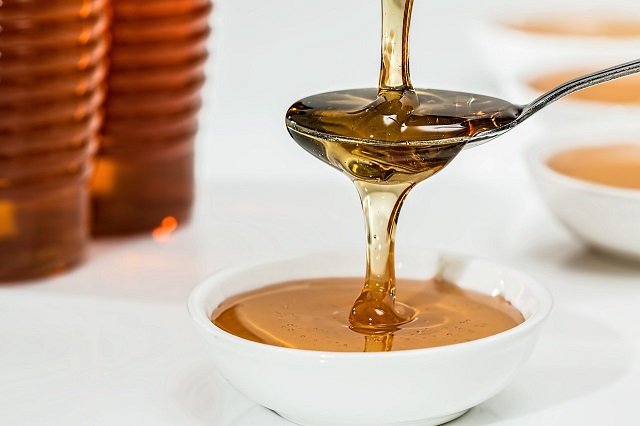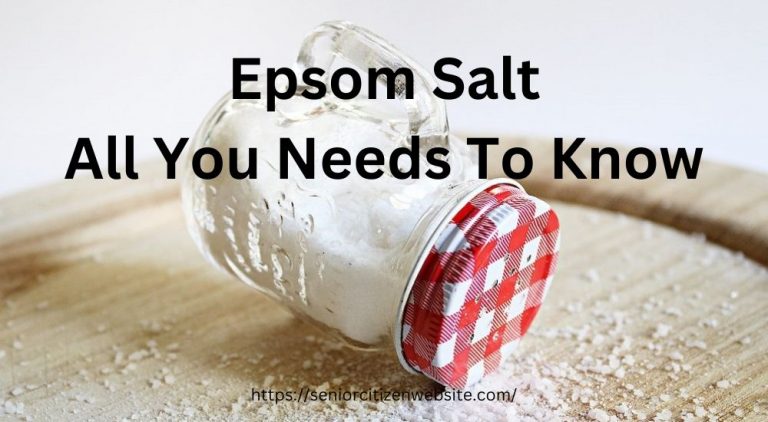Organic Raw Honey Facts And Benefits
This post may contain affiliate links for products I recommend. This does not change the price you would pay.
There is a lot of information available about the benefits of honey. There are also questions that are most of the time not answered.
Questions like: What is organic honey and does it even exist? What is raw honey and when is it not raw anymore? What is the nutrition of the honeycomb?
I had so many questions that I thought it was worth finding all the answers. Read all the facts and benefits of organic and raw honey I found.
What is the definition of organic honey?
There is no federal standard for organic honey in the United States. According to an article on brookfieldfarmhoney.wordpress.com the USDA agricultural marketing service states that honey can be called certified organic by using the “organic livestock standard”, but the “national organic standard board” recommendations are not part of this regulation.
My Opinion! “In plain English, this means that the US government can certify honey, but they have no rules for it.”
There is the first problem already. The definition and standards can also vary from country to country.
The rule is also that it has to be organic by the rules of the country it comes from and by the rules of the US. Remember however that there are no rules in the US.
There are however agencies that certify honey by the NOSB standards. Here are a few of the things they look at:
- What do the bees eat and drink
- Where do they live
- What do they feed them
- How the beekeeper treats them for parasite
- How is the honey processed
Let’s have a little closer look at these regulations
What they eat, drink, and where they live.
There cannot be anything within the reach of the bee’s daily fly-and-eat routine, which is about 2 miles from the hive, that has been treated with pesticides, chemicals, fertilizers, or even sludge from the water.
My Opinion! A 2-mile radius with no one using any pesticide, or chemicals, and only organic plants? If you find it let me know and I might consider moving there.
More standards for organic honey
Then there are the standards about treatment for parasites, the way the hive is built,t and how the honey is processed. And, yes the hive itself also has to be organic and cannot contain materials like plastic or even treated wood.
These regulations alone are in my opinion already the proof that organic honey does not really exist.
Let’s have a look at imported organic honey
Some countries like the UK, European Union, Canada, and Singapore, to mention a few, have high standards. In other countries’ organic is maybe not so organic.
Remember that I wrote that it is organic if it is organic by the rules of the country it comes from and the US standard? The problem is again that there is no official US standard and they can just put a label on their product.
If any beekeeper in the US does label his honey as organic without being certified. he will be fined $10.000.
I found a very well-regulated honey and that is Manuka honey. You can read it all in the Manuka honey facts article.
Honey starts out as nectar that is brought into the beehive from a flower. There is no guarantee that the bee only visits organic flowers.
What is raw honey

My second major question is about what raw honey is. Everyone writes about it and promotes the health benefits. However, I did not find too many good answers to my question about what raw honey now actually is.
Many people try to find raw honey that looks a little opaque in the jar and sometimes with little black dots. This basically is honey that contains ground honeycomb, beeswax, pollen, and even pieces of bees.
Yes, black spots might be a bee’s leg or joint. Is this raw honey? Yes, it probably is, but it does not mean that honey with no legs and beeswax can not be raw honey.
After reading on some beekeepers’ forums and websites I found this.
Raw honey has to do with temperature. This might sound strange but I will explain it a little better.
In a beehive, the temperature is about 95 degrees. The body temperature of the working bees in the hive raises it to that temperature. The honey at this temperature is stable and alive.
Alive in this case means that all the enzymes in the honey that gives it all the health benefits are alive.
If the temperature does not rise significantly above 95 degrees the enzymes will stay alive. If the temperature rises too much the enzymes will die and all that is left is a processed sweetener with no health benefits.
This is why you should never heat raw honey.
Pure honey, raw honey straining, and filtering
I read that some people say that pure honey is not raw honey. If the definition of raw honey is based on temperature then pure honey, which is just strained honey, is also considered raw honey.
The straining process
The straining process removes a lot of the beeswax, pollen, and black dots we talked about before.
Although all the removed ingredients have their own health benefits, the enzymes in the honey are still alive and this makes it raw honey. It is just easier to use.
The filtering process
Filtering, however, is a more mechanical process and in large-scale plants, the pressure filtering will rise the temperature and this makes it almost certain that it is pasteurized and the enzymes are no longer active.
My conclusion about organic raw honey and the benefits
- Real raw honey with all the pollen, beeswax, pieces of the hive, and all other components in it is the purest form of honey and will have the most health benefits. As long as it is not heated too much.
If it, however, is heated too much the benefits of the enzymes are lost and all you have is a nice sweetener, with some pollen, beeswax, and other ingredients.
- Raw honey can also be strained. This means that most of the other parts are removed and if it is not heated it still got all the benefits of the enzymes. It just misses the health benefits of pollen and beeswax.
- Raw honey that is mechanically filtered probably has been heated also. This means no health benefits than just the sweetening effect of honey. Although that probably is also lost for a great deal by the filtering and heating.
- Organic honey. I cannot say that it does not exist, but I have my doubts that it does after reading about all the regulations in the US in combination with imported honey
How to find the right honey
Finding raw or organic honey can be challenging. In the store when you read the label there is no guarantee that this label tells you the truth. Raw honey, unpasteurized and unfiltered on the label might help you. There also is no legal definition of raw honey. Call the company on the label and ask questions.
The color of raw honey is most of the time lighter and the consistency is not creamy like the little bear bottles.
Maybe in your local health store, they can help you find raw honey. They should know where it comes from and if it is heated, filtered, or strained.
Local Beekeepers
One of the best options is to find a local beekeeper and ask him some questions and his or her answers might help you find raw honey.
- Ask him how high he heats his honey. If he does not know that should be a big red flag.
- Ask him if it is organic. If he answers this with yes, there is another red flag.
- Ask if there are bee bits in the honey. If he answers with no and tells you everything is filtered out. There is another red flag.
There can be really good reasons a beekeeper does not want to tell you his whole process.
That also means that you still do not know what you buy.
Eddie Vandam
About the Author: Eddie Vandam
Eddie Vandam is a proud senior and retired internet marketer who now dedicates his time to helping others age well. As the voice behind the Senior Citizen Website, he shares practical advice on staying healthy, independent, and informed. From product reviews to wellness tips and hobbies that keep life interesting, Eddie writes with real-world experience and a passion for making senior life easier and more enjoyable.👉 Read more about Eddie Vandam.
Sources:
www.empoweredsustenance.com/raw-honey-definition/
http://www.honey.com/honey-at-home/learn-about-honey/how-honey-is-made
www.organics.org/differences-between-honey-and-raw-organic-honey/
http://www.swansonvitamins.com/blog/guest-authors-on-natural-health/raw-honey-the-complete-story
www.brookfieldfarmhoney.wordpress.com/2012/01/03/usda-organic-honey-what-does-it-mean/
http://www.benefits-of-honey.com/natural-honey.html







